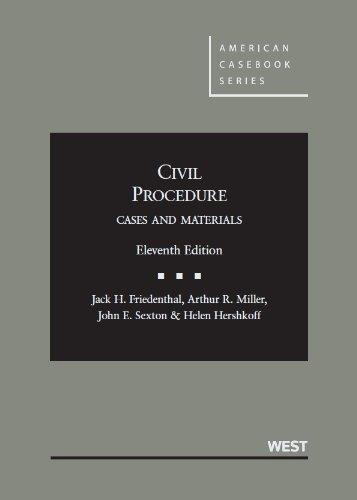7. Justice Field characterized territoriality as a general, if not universal, law that limits a states exercise
Question:
7. Justice Field characterized territoriality as a “general, if not universal, law” that limits a state’s exercise of jurisdiction. Despite that statement, the rules governing adjudicatory jurisdiction differ in legal systems around the world. Although defendant’s presence was the cornerstone of British and United States practice, domicile was key in the Netherlands and Switzerland, plaintiff’s nationality was important in France, and domicile and the situs of property were significant factors in Germany. See Juenger, Judicial Jurisdiction in the United States and in the European Communities: A Comparison, 82 Mich. L. Rev. 1195
(1984). Indeed, commentators have emphasized that “[i]n this area of law, differences among civil-law countries are as great as differences between given civil-law and common-law countries.” de Vries & Lowenfeld,Jurisdiction in Personal Actions—A Comparison of Civil Law Views, 44 Iowa L. Rev. 306, 344 (1959). The increasing incidence of transnational litigation has spurred efforts to define a global law of personal jurisdiction, which so far has proven elusive. See Oestreicher, “We’re on a Road to Nowhere”—Reasons for the Continuing Failure to Regulate Recognition andEnforcement of Foreign Judgments, 42 Int’l Law. 59
(2008).
Step by Step Answer:

Civil Procedure Cases And Materials
ISBN: 9780314280169
11th Edition
Authors: Jack Friedenthal, Arthur Miller, John Sexton, Helen Hershkoff






